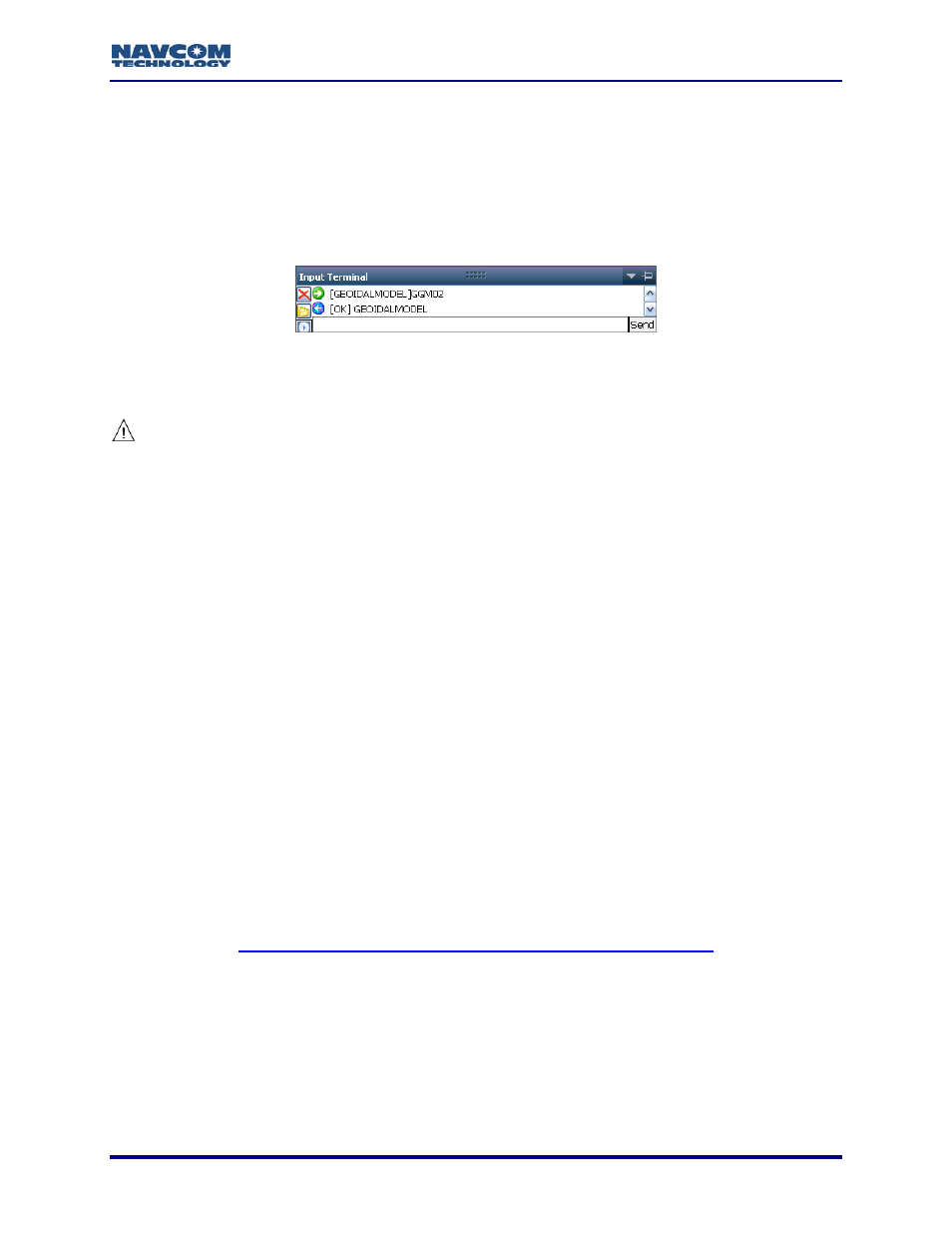Geoid height map, Below, For information on the – NavCom StarUtil-3000 Rev.A User Manual
Page 47

StarUtil-3000 User Guide – Rev A
4. Ensure
that
Restart receiver after loading (default) is checked so that the receiver will
perform a warm start (resets the receiver) after the upload is successful. (The user receives
no indication of the warm start. It is a background process.)
5. Click
the
Start Loading button. An upload progress window opens. At the end of upload, a
confirmation box opens. Click OK.
6. Type [GEOIDALMODEL]GGM02 in Input Terminal and click the Send button (see
Figure 61: [GEOIDALMODEL]GGM02 Command and Response
7. View
the
PVT window on either the Dashboard or the PVT tab to confirm the successful
upload. GGM02 is identified as the current GEOID (see Figure 56).
GGM02 is not maintained as the Geoid Model through a receiver power cycle in
version 1.0.0.4 navigation firmware. This is corrected in later versions of
firmware. To reset GGM02 as the Geoid Model, reload the appropriate user
profile or input [GEOIDALMODEL]GGM02 via the Input Terminal.
Geoid Height Map
This section provides:
The GEOIDAL99 format and file requirements. The Geoid Height Map is based on the
GEOIDAL99 format.
Instructions to upload a user-defined Geoid Height Map into the receiver
The Geoid Height Map is used to obtain more precision in a small area than the
GGM02 database can provide.
The user may create the Geoid Height Map, or download a Geoid Height Map
from the NOAA web site (URL below). The total number of points in the map
must be < 262,000 (number of rows of latitude x number of columns of
longitude).
If the total number of points is
262,000, the file upload is denied (see
Figure 64). The user is responsible to extract the appropriate portion of the
original data set. A software extraction tool, XNTG.EXE, is also available from
the NOAA web site:
4-45
